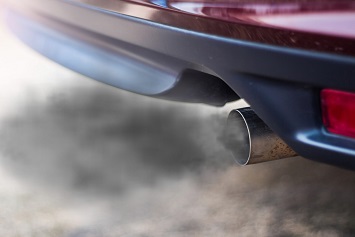The 60-day public comment period for the federal government’s proposal to amend vehicle fuel economy and greenhouse gas (GHG) tailpipe standards concluded with opposing views submitted by several members of industry. The proposed amendments were jointly issued by the National Highway Traffic Safety Administration (NHTSA) (Corporate Average Fuel Economy [CAFE] standards) and the EPA (GHG emission standards) (August 24, 2018, Federal Register (FR)). For similar reasons, both Shell Oil and General Motors said the proposal is not in the best interests of industry, American drivers, or the environment.
The agencies’ proposal would reduce targets established in a 2012 joint rule (October 15, 2012, FR). That action set CAFE and GHG emissions standards that annually became more stringent for cars and light trucks for model years (MYs) 2017 to 2025. The proposed amendments would freeze the GHG and CAFE standards at 2020 levels through MY 2026.
In addition, the proposal seeks to withdraw the EPA’s 2013 decision to grant California a Clean Air Act (CAA) waiver from federal preemption of state vehicle requirements. The waiver gave California the authority to implement its own Advanced Clean Car regulations, which comprise GHG standards, a low emission vehicle (LEV) program, and a zero-emission vehicle (ZEV) program. As authorized by the CAA, other states subsequently adopted parts of California’s Advanced Clean Car regulations. The NHTSA and the EPA now argue that California’s separate authority hinders the administration’s goal of implementing one national standard—that is, a standard that is set exclusively by the federal government.
Shell Responds
In its brief comment letter, Shell Oil notes that the EPA/NHTSA concede that their proposed amendments would increase vehicle carbon dioxide (CO2) emissions by 713 million metric tons. “Shell does not support this rollback in the standards,” states the company.
Shell links its opposition to the proposal to its support for the 2016 Paris Climate Accord, from which the Trump administration is planning to withdraw.
“The Paris Agreement … was a major step forward to coordinate the global response needed to limit warming of the planet to well below 2 degrees Celsius,” writes Shell. “Shell welcomes and strongly supports this landmark Agreement, as well as the aspiration of transitioning towards a net-zero emissions world.”
The company points out that transport accounts for one-fifth of the globe’s energy-related CO2 emissions.
“Improving fuel economy is an important lever for reducing GHG from vehicles while emerging technologies continue to develop,” states Shell. “To date, efficiency standards have demonstrated the greatest impact on CO2 abatement in transport relative to other policies. The U.S. government should promulgate policies that are consistent with the aim of the Paris Agreement.
Shell adds that any proposed standard should be achievable with a realistic implementation schedule and have an alternative compliance mechanism to provide compliance and program certainty.
Also, the company says that rescinding California’s waiver “is a step in the wrong direction.”
“While generally Shell agrees that harmonized regulation at the federal level facilitates interstate commerce, the legal standard should be carefully reviewed before any decisions are taken to challenge California’s ability to set its own greenhouse gas standards,” states Shell.
GM Responds
In a news release accompanying its comments on the proposal, General Motors (GM) endorsed a national ZEV (NZEV) program—“a 50-state solution to promote the success of the U.S. automobile industry and preserve U.S. industrial leadership for years to come.”
The company anticipates that an NZEV program has the potential to place more than 7 million long-range EVs on the road by 2030, yielding a cumulative incremental reduction of 375 million tons of CO2 emissions between 2021 and 2030 when compared to existing ZEV programs.
GM provides these framework recommendations:
- Establish ZEV requirements (by credits) each year, starting at 7 percent in 2021 and increasing 2 percent each year to 15 percent by 2025, then 25 percent by 2030.
- Use a crediting system modeled on the current ZEV program: credits per vehicle, based on EV range, as well as averaging, banking, and trading.
- Establish requirements after 2025 linked to a path toward commercially viable EV battery cell availability at a cost of $70 per kilowatt-hour (kWh) and adequate EV infrastructure development.
- Establish a zero-emissions task force to promote complementary policies.
- Terminate the program when a 25 percent target is met or based on a determination that the battery cost or infrastructure targets are not practicable within the time frame.
- Implement additional considerations for EVs deployed as autonomous vehicles and in rideshare programs.
Comments on the EPA/NHTSA proposal by Shell, GM, and many others are available at http://regulations.gov, docket NHTSA–2018–0067.

